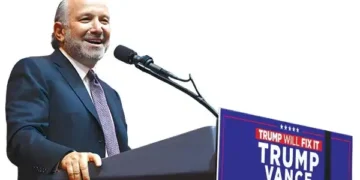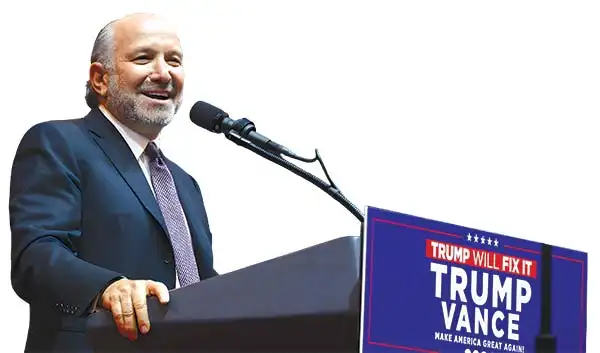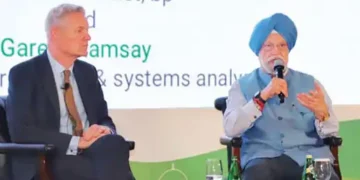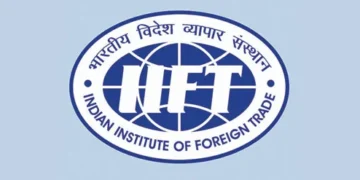Blitz Bureau
US Commerce Secretary Howard Lutnick on July 27 confirmed that the August 1 deadline for imposing tariffs on its trading partners remains unchanged. Speaking firmly on the matter, Lutnick ruled out any possibility of an extension, underscoring the administration’s commitment to its trade policy timeline, news agency AFP reported.
“So no extensions, no more grace periods. August 1, the tariffs are set. They’ll go into place. Customs will start collecting the money, and off we go,” Lutnick told “Fox News Sunday.” Meanwhile, European Commission President Ursula von der Leyen is set to meet US President Donald Trump to clinch a trade deal for Europe that would likely see a 15 per cent baseline tariff on most EU goods, but end months of uncertainty for EU companies.
US and EU negotiators huddled in final talks on tariffs facing crucial sectors like cars, steel, aluminium and pharmaceuticals before the meeting in Scotland. Lutnick told “Fox News Sunday” that the EU needed to open its markets for more US exports to convince Trump to reduce a threatened 30 per cent tariff rate that is due to kick in on August 1. “The question is, do they offer President Trump a good enough deal that is worth it for him to step off of the 30 per cent tariffs that he set,” Lutnick said, adding that the EU clearly wanted – and needed – to reach an agreement.
After the levies kick in, President Donald Trump – who was negotiating in Scotland with European Union officials – is still willing to keep talking, Lutnick said. Of the Europeans, Lutnick said, “You know they’re hoping they make a deal, and it’s up to President Trump, who’s the leader of this negotiating table. We set the table.” So far five countries have struck deals with the Trump administration ahead of the August 1 deadline as it tries to overhaul the global system of largely free trade by slapping tariffs on countries that the United States deems as engaging in unfair practices.
These five are Britain, Vietnam, Indonesia the Philippines, and Japan. The levies they accepted are often higher than the new base rate of 10 per cent that the United States has applied to most countries since April.

































